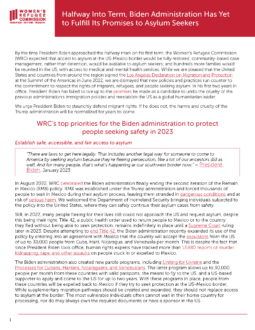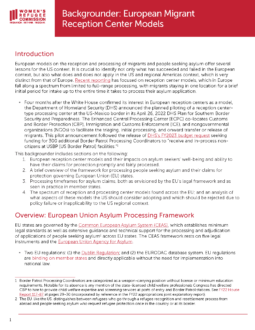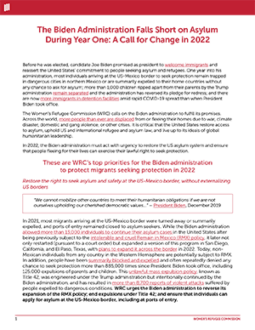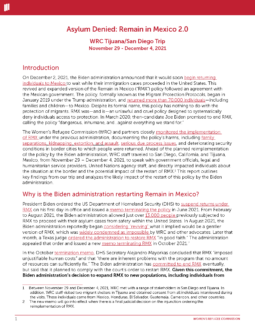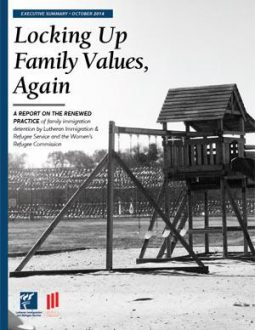
Locking Up Family Values, Again
PublishedIn 2009, the Obama administration closed what then was the United States’ largest family immigration detention facility after years of controversy, media exposure, and a lawsuit. Conditions at T. Don Hutto Family Detention Facility, and the impact of detention on families and children, proved that family detention could not be carried out humanely. In the summer of 2014, with an increase in the number of mothers and children fleeing violence and persecution in Central America, the Administration has returned to this widely discredited and costly practice.
The findings in Locking Up Family Values, Again are informed by our tours of the Artesia and Karnes facilities as well as interviews with facility and government officials, detained families, and legal and social service providers. Much like in our 2007 report, Locking Up Family Values, our findings again illustrate that large-scale family detention results in egregious violations of our country’s obligations under international law, undercuts individual due process rights, and sets a poor example for the rest of the world.
Locking Up Family Values, Again documents that most of the families detained – such as 98% at the Karnes facility based on September 2014 statistics – are seeking protection in the United States. The average age of children in the government’s Artesia facility as of October 2014 was six years old.
In addition to inadequate access to child care, medical and mental health care, and legal assistance, we find that family detention remains as rife for abuse. In October 2014, the Karnes facility was at the center of allegations of sexual assault by guards threatening or bribing detained women. In another example, a detained young mother at a family facility was suddenly accused of abuse, torn apart from her two small children and transferred to an adult facility without explanation or information on her children’s welfare or whereabouts.
Our conclusion is simple: there is no humane way to detain families. This report recommends that the government close Artesia and Karnes and halt plans for opening a new facility, improve its screening procedures, and revise its policy of no or high bonds for families. The report calls on the government to implement the vast array of cost-effective alternatives to detention that are successful in ensuring participants appear for scheduled court hearings.
KEY RECOMMENDATIONS
- End the expansion of family detention: Close the Artesia, New Mexico and Karnes, Texas family detention centers and halt plans for a massive new detention facility in Dilley, Texas.
- The Department of Homeland Security should institutionalize a preference for release or community support programs for all families who can establish identity and community ties and who do not pose a security risk.
- Fully implement and expand alternatives to detention: A vast array of alternatives to detention exist that are not only cost-effective but also succeed in ensuring participants appear for scheduled court hearings. Alternatives to detention should be available nationally and should include community-based support programs and meaningful case management. Enrollment in alternatives to detention should be based on an individualized assessment of flight and security risk.
- Improve screening procedures for families seeking protection. Families should have the opportunity at all stages of the apprehension and detention process to express a fear, and they should have full and fair access to the appropriate screening processes and legal information.
- Revise policies of no or high bonds for families: To ensure detention is not excessively used, detained families should be considered eligible for parole or released on individually determined and reasonable bond.
Learn more about family detention of immigrants here.



